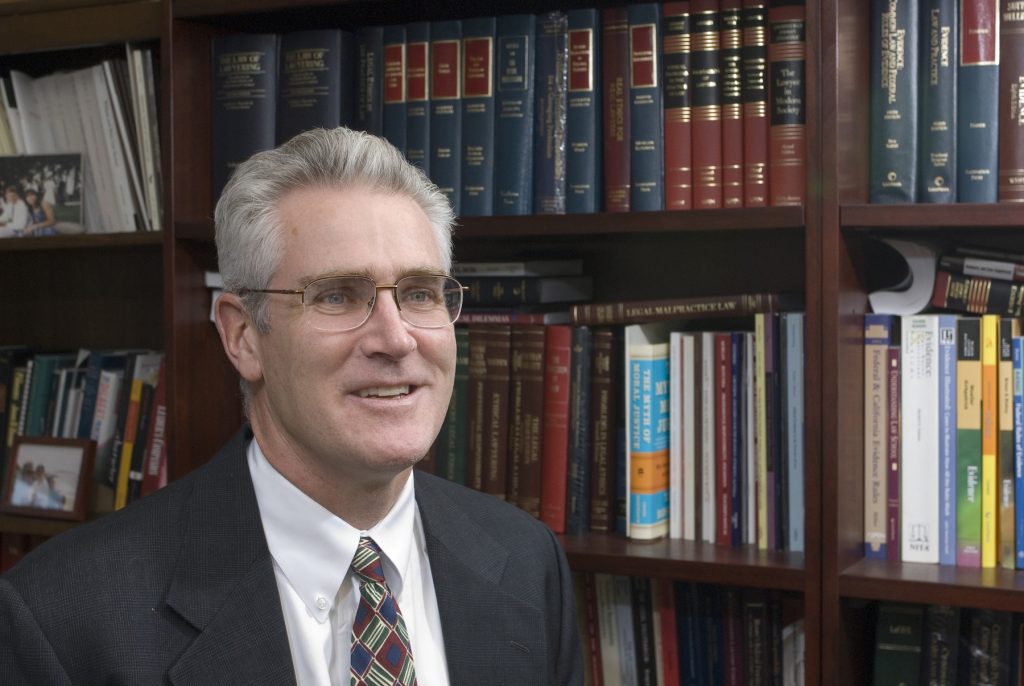Scholarship by Professor R. Michael Cassidy proved prescient when the US Department of Justice announced its new policy on October 14, requiring federal prosecutors to stop seeking waivers from criminal defendants of their rights to claim ineffective assistance of counsel in negotiated plea agreements.
Last year, 97 percent of federal prosecutions ended in negotiated guilty pleas, and about a third of the country’s 94 US attorney’s offices regularly demanded these waivers. Criminal defendants are entitled to effective legal representation under the Sixth Amendment.
Cassidy, an expert on the subject of prosecutorial ethics who provides training nationally to public sector attorneys on their responsibilities under the Rules of Professional Conduct, was an early critic of these waivers.
“Constitutionally defective representation strikes at the core of the defendant’s ability to choose freely the options presented,” he wrote in his 2011 San Diego Law Review article, “Some Reflections on Ethics and Plea Bargaining.” He added, “Insisting on so-called ineffective counsel waivers impresses me as overreaching of the worst sort and fundamentally inconsistent with a prosecutor’s obligation as a minister of justice.”
Cassidy also argued that the waivers insulated criminal defense lawyers from liability for malpractice and that, by insisting on these waivers, prosecutors were improperly encouraging defense attorneys to violate their ethical obligations to their clients.
After 2011, the number of state bar overseers who ruled that the waiver was unethical more than doubled, from five to twelve, and the number of federal district courts who refused to enforce the waivers “skyrocketed,” Cassidy says.
“This new justice department policy is a welcome step forward in harmonizing practices among the districts, and helping to assure that federal prosecutors do not overstep their proper role in plea negotiations,” Cassidy says.


